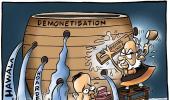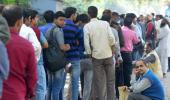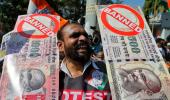'They are not tom-tomming what a great thing the Supreme Court decision is.'
'If they say it was a great thing, the public will react because people suffered and are still suffering.'

On Monday, January 2, 2023, a five-judge Constitution bench of the Supreme Court of India, through a 4-1 verdict said the Narendra D Modi government's decision to demonetise Rs 500 and Rs 1,000 notes on November 8, 2016, was valid.
Professor Arun Kumar, an expert on black economy, has been a strong critic of the idea of demonetisation since 1984 when he wrote about it. His book, Demonetisation and Black Money critically analyses the Modi government's demonetisation decision.
He stands by his opinion and agrees with the Justice B V Nagarathna's dissenting judgment on demonetisation.
"Demonetisation and GST are the worst possible decisions... While demonetisation was just one shot, the damage due to GST is continuous," Professor Arun Kumar, below, tells Rediff.com's Shobha Warrier.
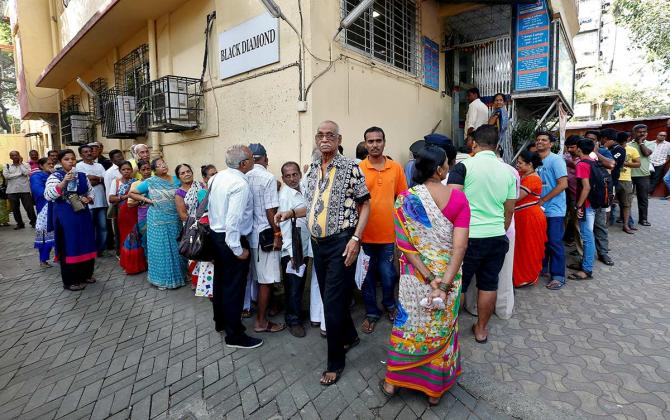
In its verdict on demonetisation, the Supreme Court said it was not relevant whether the objectives of the policy were achieved or not. How do you react to such a statement?
It is important to see whether a policy achieved its objectives or not.
If a policy doesn't achieve its objective, and if it has severe adverse implications on the economy and society, the policy must be judged on whether it is right or wrong.
In a democracy, there has to be widespread consultation also, but that was not done in this case.
So, it was a faulty procedure in a democracy.
Not only widespread consultation was not done, but the RBI Board also had expressed certain doubts while formally recommending it.
Not just now, in 1978 also when demonetisation was earlier implemented, the then RBI governor I G Patel had given in writing that such a policy would not be able to check the black economy.
So, one cannot just say, one would not look at the outcome at all as it had good intentions.
How can it be good intention if the policy was destined to fail?
The Supreme Court should have looked at whether or not the policy achieved its objectives.
From the arguments that were placed before the judges, it was clear that the policy failed to achieve its objectives.
Saying that achievement of objectives does not matter is actually an admission that they were not achieved.
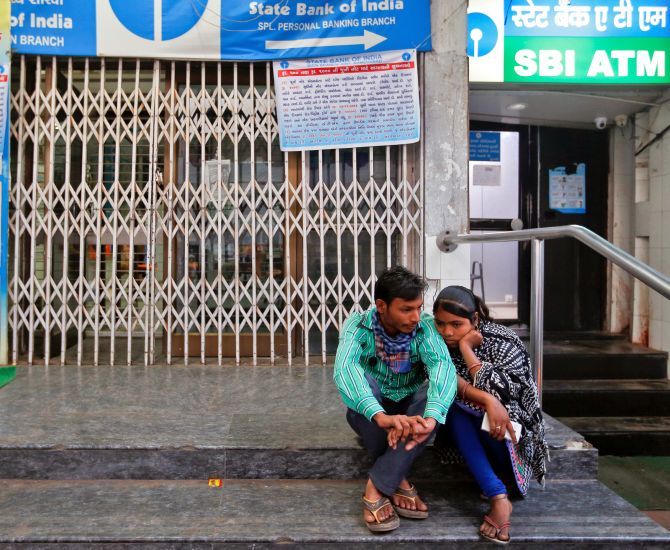
It was a secret mission for the government then...
Why was secrecy about the decision needed? Why could the government not do wider consultation?
Former RBI governor Raghuram Rajan had said his advice to the government was that such a policy would not succeed.
In 1978, the then RBI governor had given in writing that such a policy would not help curb the black economy.
I, as an expert, have been writing about it since 1984 and arguing that such a policy would not only not deliver but would damage the economy.
So, the expert opinion was that such a policy would not work. Yet, they went ahead.
And they bypassed the parliament, they manipulated the RBI, and that's the disturbing part.
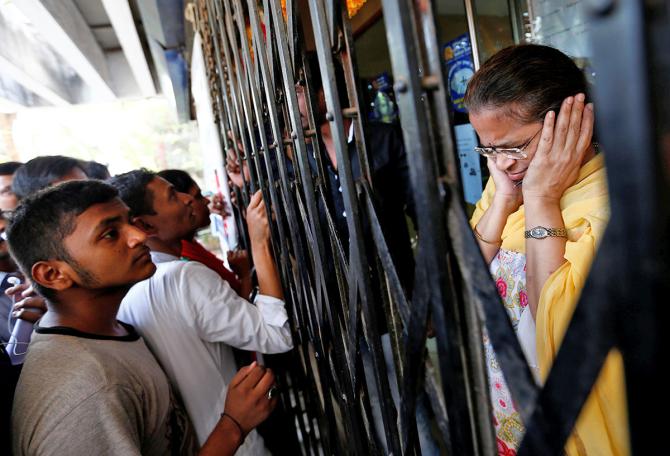
Justice Nagarathna observed that 'Parliament, which is at the centre of our democracy, cannot be left aloof in a matter of such importance'...
Exactly. Parliament met on the 16th of November 2016, and a Bill could have brought up then, but they didn't do it.
They promulgated the ordinance on the 30th December and a Bill was brought in the Parliament in February after the Budget.
It is not proper for democracy that Parliament is bypassed.
Consultation is not concurrence. You can ask me my opinion, and I can say, no. After that, it is not proper to say, I have been consulted, but I am not going to consider what you have said and will go ahead with whatever I had decided.
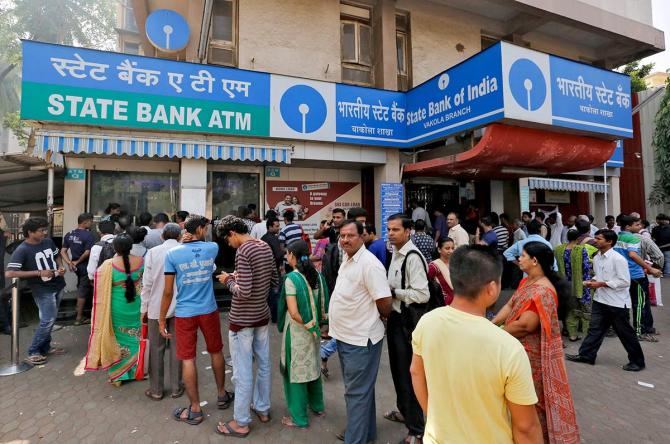
The government had repeatedly said that it was to flush out black money that demonetisation was done.
When we spoke in 2021, you had said that demonetisation did not impact even 0.001% of black money...
Yes. I have been saying that black does not mean cash. Cash is less than 1% of black wealth, since most of black is saved in some asset or the other.
So, when you try to eliminate black cash, you are not even touching 99% of the black wealth.
After demonetisation, 99.3% of cash came back. That means only 0.7% of cash did not come back.
My argument is that this 0.7% must be in Nepal or Bangladesh or in Dubai or with the NRIs or with old people who could not give back. And that's not black.
It means none of the black cash got kicked out. And black cash itself is only less than 1%. That's why I said, not even 0.001% of black wealth got eliminated.
It means demonetisation was a complete failure in tackling black wealth.
The second aspect is, black income is generated by under invoicing and over invoicing.
Both under invoicing and over invoicing are not impacted by demonetisation. It means, black income generation did not stop.
They spoke of cashless economy, but cash is still king in the Indian economy with an increase of 83% in circulation...
See, an economy will never be cashless. Even the advanced economies like the US or Norway, it's not cashless; it is less cash.
The point is, the Indian economy was becoming less cash slowly; it has nothing to do with demonetisation.
You can accelerate that process by other means, and you don't need demonetisation for that.
Further, that was not the argument the prime minister gave on the 8th of November.
Later, seeing the money flooding back to the banks, they changed the goal post.
Why do people hold cash? Every household holds some cash for transaction and precautionary purposes, and not just as black money.
Businesses need working capital. Then, people speculate using money.
It is not just for black income generation or black money that people hold cash.
Now, the cash in the economy has increased dramatically in the last 6 years.
It was about Rs 18 lakh crore in November 2016, but today, it is about Rs 31 lakh crore.
If the cash-GDP ratio was 12% then, it went up to 14% in 2021.
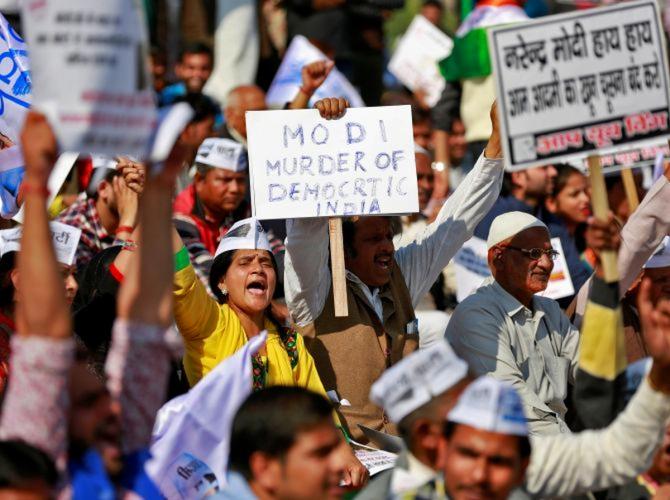
On one side, the government is talking about a huge increase in digitisation, etc, but on the other side, cash in circulation has increased. Why?
As I said, people hold cash for different reasons. Whenever there is uncertainty, they hold more cash.
And there has been a lot of uncertainties in the last 4-5 years.
Therefore, they are holding more cash, but that doesn't mean there is more black money.
It can come down when the economy performs better.
So, saying more cash means an economy is generating more black money is not correct.
In Japan, the cash-GDP ratio was 18% in 2016, much more than our 12% at that time. But you can't say Japan is more corrupt.
In Nigeria, it was 1.4%! Sweden also, it was 1.4%. The black economy is less than 1% in Sweden but more than 50% in Nigeria.
The cash-GDP ratio does not tell whether the economy has more black or less black.
So, if there is less cash in the economy, there will be less black money, is a wrong argument.

6 years after demonetisation, you wrote that the adverse impact of demonetisation still persists. Can you elaborate?
Cash is not something people eat. It is used for transaction, and it is in circulation or used as store of value.
In an economy when cash becomes short, transactions become difficult.
That affects the whole chain of production and distribution, and the economy starts to decline.
In India, the unorganised sector works on cash. The moment cash became short in 2016, a lot of businesses shut down.
In fact, a beggar said on NDTV that she used to get Rs 300 a day which dropped to less than Rs 20 after demonetisation because people did not have small money to give.
She said, one of her children died because there was no food at home.
Many micro enterprises stopped functioning. The unorganised sector contributes 45% of the GDP.
When 45% of the GDP is hit, the rate of growth declines and can become negative.
Demonetisation led to the rate of growth of the economy turning negative.
The official figures based on organised sector data did not catch this decline in GDP.
The result was unemployment, reduced production, etc. The economy got hit very hard.
Eight months later, GST was initiated which further hit the unorganised sector. Then came the pandemic and lockdown.
So, the unorganised sector has been in decline since 2016 and has not recovered till now.
That's why I say, presently the rate of growth is not 7%, but -1%. The reason is, data on the unorganised sector is not independently available.
Only the data mostly from the organised sector is available and used to give the rate of growth as 7%.
When do you see an economic recovery?
Unless you revive the unorganised sector, the micro sector and agriculture, the Indian economy will continue to suffer.
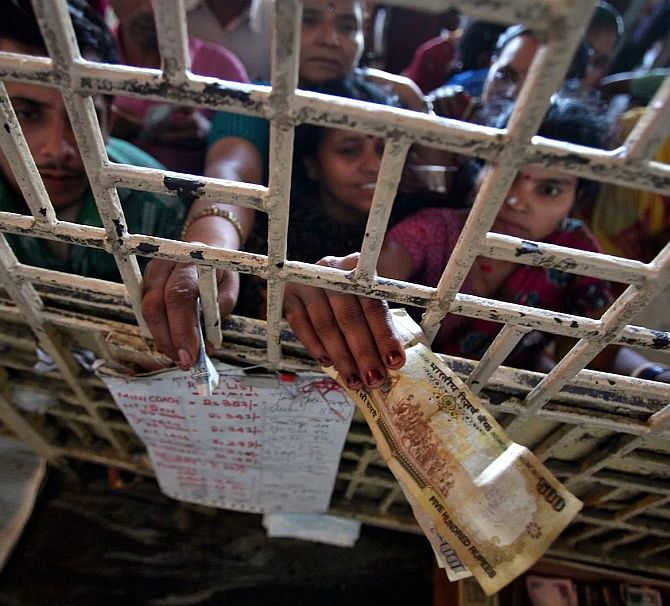
Do you think demonetisation was the worst economic decision taken in the last nine years by the Modi government?
Both demonetisation and GST are the worst possible decisions because GST also has damaged the economy, especially the unorganised sector.
While demonetisation was just one shot, the damage due to GST is continuous.
So, both were equally bad for the economy in their own different ways.
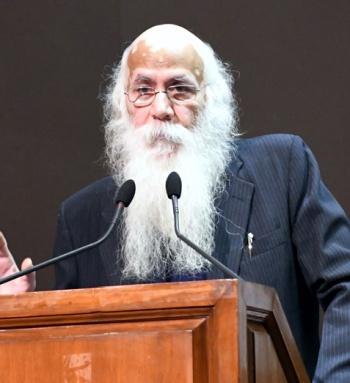
After the Supreme Court verdict, the government seemed to be happy, and the BJP is asking its detractors including Rahul Gandhi to apologise...
You should remember that politically, they are not tom-tomming it.
Except for the UP elections after demonetisation, they have not used it as an election issue.
They don't even refer to demonetisation in their campaign.
That's because they do not want to remind people of it.
They never celebrated its anniversary. They just keep quiet.
Otherwise, they would have been distributing sweets and bursting crackers.
Only some statements are coming here and there, but they are not tom-tomming that what a great thing the Supreme Court decision is.
If they say it was a great thing, the public will react because people suffered and are still suffering.
They may not openly say it, but they have realised that it is one of the biggest blunders they have committed! They know it was a political and economic mistake.
Feature Presentation: Aslam Hunani/Rediff.com
